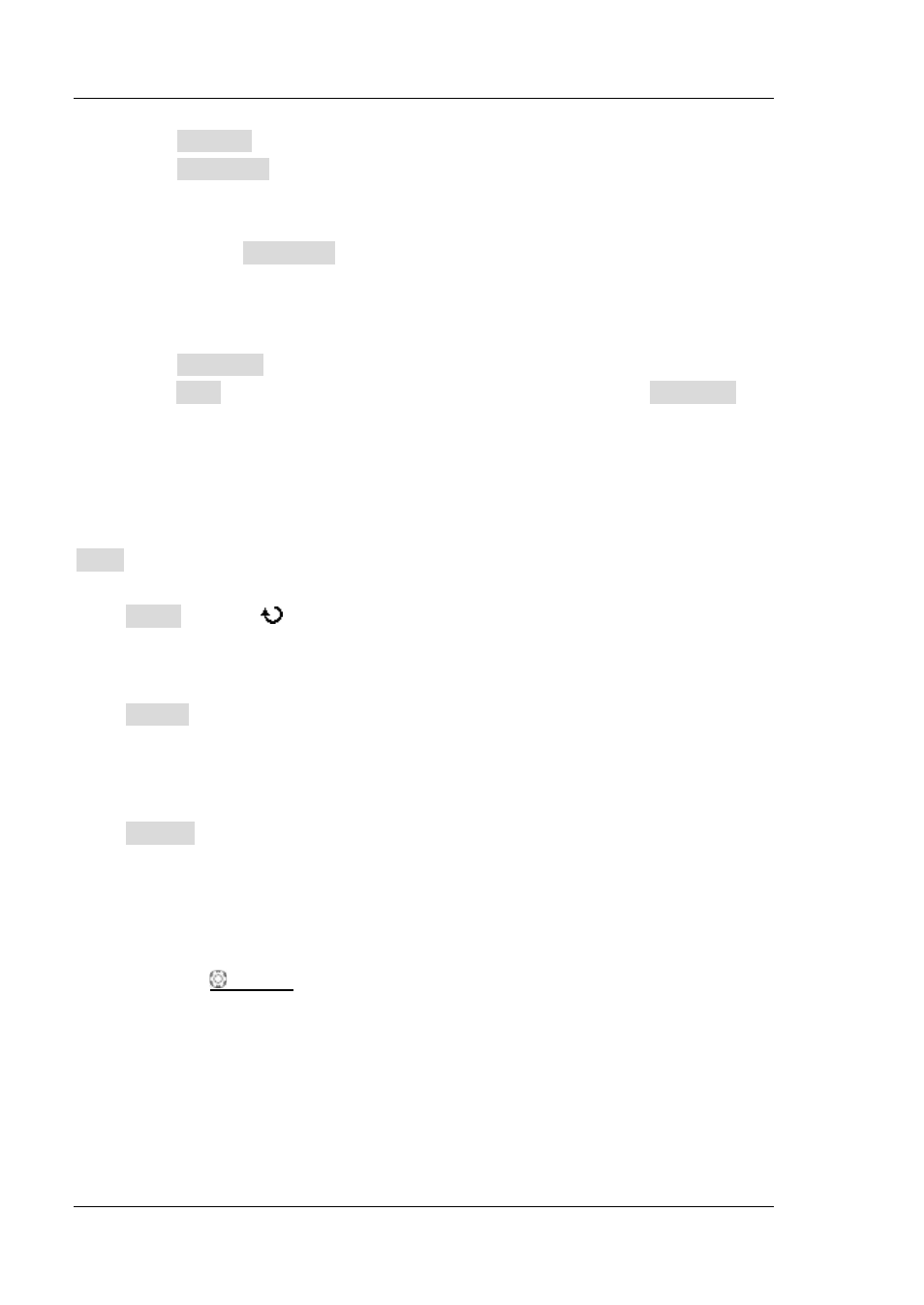RIGOL MSO/DS2000A Series User Manual
Page 124

RIGOL
Chapter 5 To Trigger the Oscilloscope
5-38
MSO2000A/DS2000A User’s Guide
--press Stop Bit to select “1 bit” or “2 bit”;
--press Even-Odd to select “None”, “Odd” or “Even”.
The oscilloscope will determine error frame according to the preset parameters.
Check Error: trigger when check error is detected. When this trigger condition is
selected, press Even-Odd to select “Odd” or “Even”. The oscilloscope will
determine check error according to the preset parameters.
Data: trigger on the last bit of the preset data bits. When this trigger condition is
selected:
--press Data Bits to select “5 bit”, “6 bit”, “7 bit” or “8 bit”;
--press Data and input the data value according to the setting in Data Bits and
the ranges are from 0 to 31, from 0 to 63, from 0 to 127 and from 0 to 255
respectively.
Baud Rate:
Set the baud rate of data transmission (equal to specifying a clock frequency). Press
Baud to set the desired baud rate to 2400 bps, 4800 bps, 9600 bps (default), 19200
bps, 38400 bps, 57600 bps, 115200 bps and user-defined. When “User” is selected,
press Setup and use
or the navigation knob to set a more specific value from 1
to 900000 with an adjustment step of 1 bps.
Trigger Mode:
Press Sweep to open the trigger mode list and select “Auto”, “Normal” or ”Single”.
For the details, please refer to “Trigger Mode”. The corresponding status light of
the current trigger mode turns on.
Trigger Setting:
Press Setting to set the trigger parameters (trigger holdoff and noise rejection)
under this trigger type.
Note:
Noise rejection is grayed out and disabled automatically when the signal
source is set to any channel of D0-D15.
Trigger Level:
Use TRIGGER LEVEL to modify the level. For the details, please refer to the
introduction of “Trigger Level”.